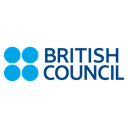Executive Secretary

III International Scientific Conference "Challenges of Education 2023"
Abstract
The training of the new generations is a priority objective in Cuba, in the same way in the tourism sector. Deficiencies have been detected in the student training process at the Tourism Training Center (CCT) "Alberto Delgado Delgado" of Villa Clara, therefore the objective of the research was to propose a theoretically and methodologically supported methodology that assumes the Cognitive, communicative and sociocultural approach (CCSA) from a holistic and integrating vision and offers from the procedural new forms of teaching organization, as well as methods, evaluation forms and contents selection from the English language teaching-learning process (TLP) to contribute to the students training at the Center. The sample used has a heterogeneous character made up of twenty-three students from the different specialties that are studied there. The qualitative approach and systematization are assumed as the guiding method. Likewise, the interview, the survey, the documents review and the participant observation were used as scientific research methods. As a main result, a sustained, psychological, idiomatic, philosophical, pedagogical, and didactic methodology is proposed, which contributes to their training, and reveals essential facets of educational, touristic, and intercultural work.
Resumen
La formación de las nuevas generaciones constituye un objetivo priorizado en Cuba, de igual manera en el sector turístico. En el Centro de Capacitación del Turismo (CCT) “Alberto Delgado Delgado” de Villa Clara, se han detectado carencias en el proceso de formación los estudiantes, por ello el objetivo de la investigación consistió en proponer una metodología sustentada teórica y metodológicamente que asume el Enfoque cognitivo, comunicativo y sociocultural (ECCS) desde una visión holística e integradora y ofrece desde lo procedimental nuevas formas de organización de la enseñanza, así como métodos, formas de evaluación y selección de los contenidos desde el proceso de enseñanza-aprendizaje (PEA) del idioma inglés para contribuir a la formación de los estudiantes en el Centro. La muestra utilizada posee un carácter heterogéneo compuesta por veintitrés estudiantes de las diferentes especialidades que allí se estudian. Se asume el enfoque cualitativo y la sistematización como método rector. Asimismo, se emplearon como métodos y de investigación científica la entrevista, la encuesta, la revisión de documentos y la observación participante. Como resultado principal se propone una metodología sustentada, psicológica, idiomática, filosófica, pedagógica, y didácticamente, que tributa a su formación, y revela facetas esenciales del quehacer educativo, turístico e intercultural.
About The Speaker

Dra. Mildrey Herrera

Trabaja como profesora de idioma inglés en el Centro de Capacitación del Turismo "Alberto Delgado Delgado".
Discussion
